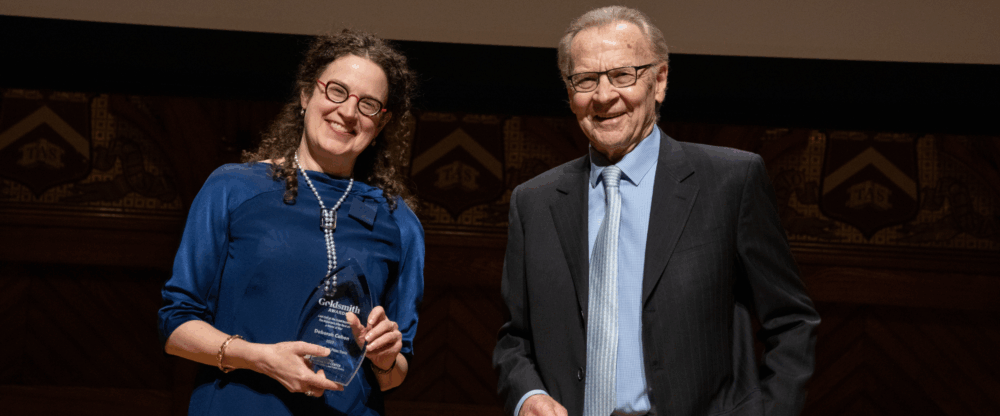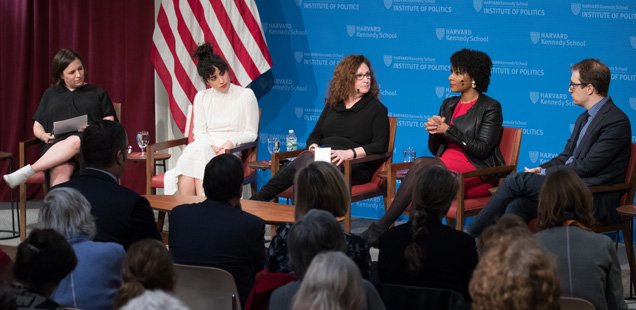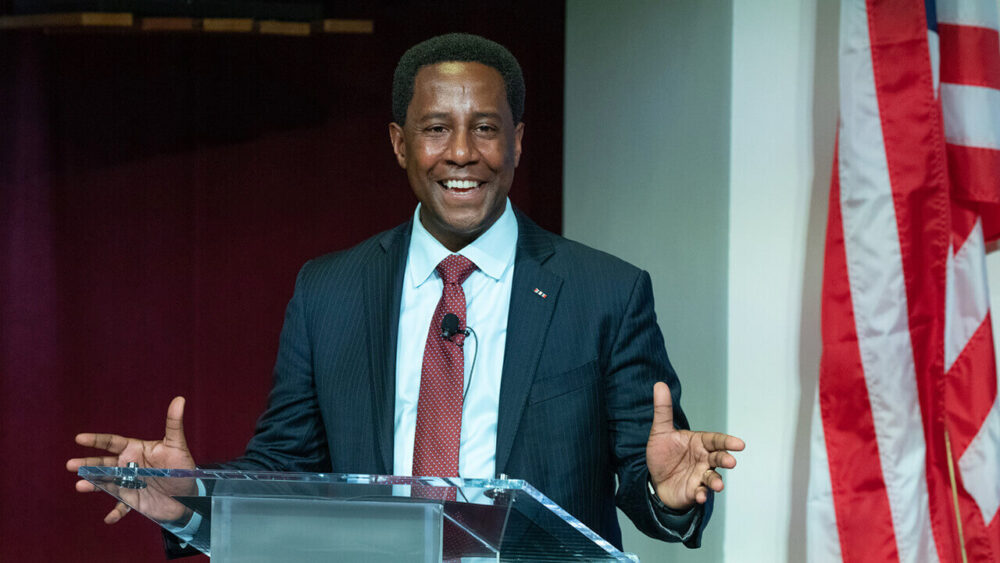
Nominations open for the 2026 Goldsmith Awards
Newsletter

#MeToo and the Media. A panel discussion featuring Koa Beck, editor-in-chief of Jezebel; Dahlia Lithwick, senior editor at Slate; Zerlina Maxwell, senior director of Progressive Programming for SiriusXM; Gabriel Sherman, special correspondent for Vanity Fair; and Genevieve Roth, Joan Shorenstein Fellow (moderator). Watch the video.
Optimizing for Audiences — SEO 101 for Nonprofit News, from our Single Subject News Project blog.
How Facebook’s changes could hurt the ‘good guys’. Nicco Mele, Shorenstein Center director and Dipayan Ghosh, Joan Shorenstein Fellow, write, “In a sense, the API changes Facebook is implementing could even contribute to the potential for nefarious disinformation operations, including the tactics that have been pursued by the Russians. These new changes will very likely make it harder for academic researchers, journalists and the broader body politic to analyze the integrity of public spaces; for instance, it will be harder for the public to understand how disinformation and hate speech spread on social media platforms if access to the underlying data is restricted.”
Mele also spoke about political ads on a podcast this week, and Ghosh wrote about the need for bipartisan cooperation after Mark Zuckerberg’s testimony.
Preserve Net Neutrality: All Data is Created Equal. Tom Wheeler, Walter Shorenstein Media and Democracy Fellow, will make the case for net neutrality in a debate on Intelligence2 on Tuesday, April 17. Watch the live stream.
Mark Zuckerberg Can Still Fix This Mess. Jonathan Zittrain, George Bemis Professor of International Law at Harvard Law School and Shorenstein Center faculty affiliate, writes, “Facebook needs to do more than just identify political ads and who’s behind them, a change it announced on Friday. All of its ads, political or otherwise, should be available for anyone to peruse, not just those targeted to receive them. Most of us won’t spend a Sunday looking through Facebook ads, but public interest groups and consumer protection officials will, and they’ll publicize and be in a position to act on the troubling things they find.”
Mark Zuckerberg’s Facebook hearing was an utter sham. Zephyr Teachout, visiting assistant professor in 2010, writes, “Asking Zuckerberg philosophical questions, such as how he thinks we should deal with questions of hate speech, treats him as a thought leader. Accepting his failures to catch discriminatory housing ads, for instance, treats him as a good-hearted actor with limited resources, instead of someone who is making monopoly margins and billions in profits.”
‘Chappaquiddick’ Distorts a Tragedy. Neal Gabler, fall 2011 fellow, asks, “What is the relationship of fact to fiction, of the historical to the histrionic in art and entertainment? Ted Kennedy was a real man living out a real life. His political opponents could and did distort that life for their advantage. But just how many liberties can an artist or entertainer take when he or she deploys a biographical subject?” During his fellowship, Gabler wrote a paper on the press and Edward Kennedy.


Center News

Center News